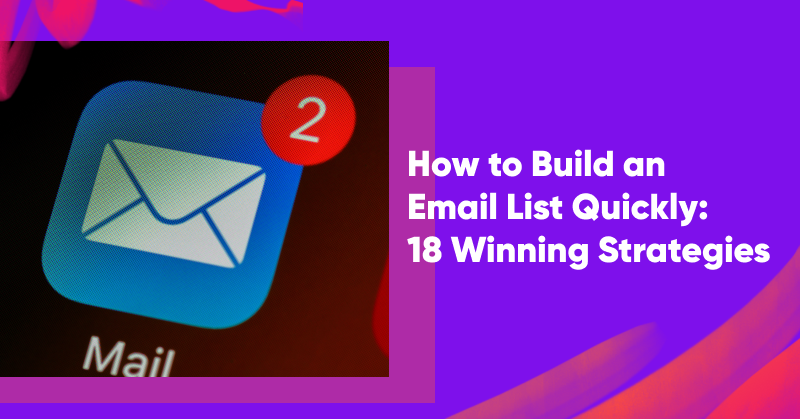20 Good Facts For Choosing Email List Sellers
20 Good Facts For Choosing Email List Sellers
Blog Article
What Should I Be Thinking About When Purchasing A Hematologist Email List?
When purchasing a hematologist email list, it is essential to concentrate on a number of crucial aspects to ensure the list is effective, accurate legal, compliant and relevant to your marketing goals. These are the most crucial considerations to consider. Quality of data and accuracy
Source of data: Verify that the data provider is using reliable sources, such as professional directories, databases, or opt-ins made by Hematologists. The quality of the list will depend on how well the information was taken.
Verification and updates - Contact the service provider about the data verification process they use. Emails should be validated to eliminate inactive or inaccurate addresses. The list should be updated frequently to ensure accuracy because healthcare professionals could move between institutions or jobs.
Segmentation of the List The list must be segmented according to subspecialties (e.g. pediatric or oncology), years of experience and hospital affiliation. A well-organized list will help you focus your outreach more effectively.
2. Legal Regulations
Data Privacy Laws â Ensure that you are in compliance with privacy laws that govern data which include the General Data Protection Regulations (GDPR) for Europe and the California Consumer Privacy Acts (CCPA) for the U.S. and other applicable laws. That means that email addresses have to be gathered with proper consent.
CANSPAM Act: If you reside located in the U.S.A., make sure that the list complies to the CANSPAM Act that governs all commercial email communications. Infractions could result in sanctions and your email may be flagged as spam.
Consent to Opt In: The list should include only doctors who have an explicit consent to receive emails from third parties. The sending of unwelcome emails to individuals without their permission could have a negative impact on engagement, and even lead to legal issues.
3. Provider Reputation
Reputable Provider: Study the reputation of the provider on the list. Look through testimonials, reviews and case studies to determine if they are a reliable business. A reliable provider with a proven reputation is more likely to deliver compliant, high-quality information.
Transparency. Select a provider with transparency regarding where and how the data was collected. Avoid providers who are not clear or specific about the method they use to collect data.
Customer Support: It's important to choose a service that has good customer service. Support can be crucial when you need help in tackling technical issues, modifying your list or issues with compliance.
4. Cost and Return on investment (ROI).
Pricing Model: Look at the pricing structure offered, such as pay-per-contact or flat fee. Pricing should be based on the ROI potential, while balancing the quality and the quantity of your options with your marketing budget.
Refund Policy or Replacement Policy. A reputable provider offers a policy of refund or replacement for incorrect or out of date emails. Make sure you understand the conditions of this policy prior to making the purchase.
Compare features of the list, like segmentation options, and the data accuracy guarantee from the company, as well as the price. The cheapest list does not ensure the highest value in terms of value if it is based on low quality data.
5. Use and Ownership of Data
The distinction between a single-use and a list of email lists with multiple uses. Understanding the terms of usage is important. Some providers may only allow you to use their list for one email campaign, while others might offer full ownership and unlimited usage rights.
Exclusive vs. shared lists: Ascertain if the list belongs to your company or distributed to other buyers. Exclusive lists typically offer better engagement, as people on the list are less likely to have received marketing emails from many sources.
6. Data Format and Integration
Compatibility: The email list should be compatible with CRM or email tools. The list must be available in common formats such as CSV or Excel to ensure easy integration.
The list should be simple to control and filter. Lists with lots of information that are difficult to work with or segment will reduce the effectiveness and efficiency of your marketing campaign.
7. Ethical Besorgnization
Relevance to Hematologists Make sure that your outreach emails are appropriate to the field of hematology. Sending them content that doesn't match their expertise could result in a lack of engagement, which could negatively impact the reputation of your brand.
Avoid spam practices: Do not bombard recipients with too many emails. The sending of spam complaints could harm your reputation if you send too many emails.
We also have a conclusion.
It is important to consider the advantages and disadvantages of purchasing the list of hematologists. To ensure you're getting a list with high quality and accuracy, concentrate on the accuracy of the data, the compliance with privacy laws and the track record and reputation of the company. Segmentation, legal compliance and ethical marketing are among the most crucial aspects to take into consideration when you are trying to maximize your ROI. Have a look at the top rated hematologists email list for more tips.
Top 10 Things To Think About When You Are Purchasing An Email Database To The Gas And Oil Industry
When buying an email list to be used in the gas and oil industry, it's crucial to think about a number of aspects to ensure that the list is high-quality, targeted and legally legal. Here are 10 essential things to keep in mind:
1. Relevance of target audience
Be focused on the industries: Ensure the list of email addresses is targeted at the oil & gas sector. An organized email list should include professionals including engineers and geologists. operations managers and decision-makers from downstream, upstream, and midstream operations.
Job Titles and Roles: Find a list which includes the most important decision-makers (executives engineers, managers, executives etc.) In the company you want to target.
2. List the source and vendor reputation
Reputable Suppliers: Purchase only from trustworthy and reputable providers of email lists who follow the highest standards of data collection practices. Avoid sources with questionable origins since they can cause poor-quality data, or even legal issues.
Data Quality - Research reviews and testimonials that can be used to gauge the credibility and reliability of a list-provider.
3. Data Freshness and Accuracy
Data Age: The database must be updated with the most recent information about contact details. The personnel of oil and gas companies is always shifting, which can lead to outdated contact information.
Verification Procedure. Make sure that vendors regularly verify and make changes to their lists in order to eliminate inaccurate or non-responsive contact information.
4. Compliance with Regulations (GDPR, CAN-SPAM, etc.)
Legal Compliance - Ensure the list is in compliance with the laws of both countries, including GDPR, CANSPAM, etc. which govern the processing and storage of personal data. Failure to comply could result in criminal penalties or legal risk.
Opt-in Process : Check that all email addresses collected in the list have been completed with consent. This means that they've signed up to receive emails.
5. Segmentation and Customization
Custom Segmentation: Top quality list providers should have the option of segmentation based on factors like location, job title, business size, or sub-sectors in the field of oil and gas.
Custom Filters - Based on the goals for your campaign that you have, make sure that your list can be tailored to meet specific criteria like geographical location, size of business, or any other requirements.
6. Deliverability Rate
High Deliverability Rates - A good email list will have high rates of deliverability, typically 95% or more. Bounce rates on poor quality email lists can be excessive, which could damage your reputation and affect marketing efforts.
Tests and Metrics: Request the vendor for metrics of deliverability or historical performance to evaluate the effectiveness of the list.
7. Volume vs. quality
Quality over Quantity: Ensure that the list isn't just large in volume but also highly specific and precise. A smaller but quality mailing list is more efficient than one that is large and general.
Engagement Metrics Prioritize Engagement Rates over Contact Numbers. An active audience is more likely to respond better to your campaign.
8. Pricing and Costing Structure
Transparent Pricing â Understand the price structure, whether it's a one-time or recurring subscription. Be wary of extremely low-cost lists, as they may not be worth the money or provide quality.
Return on investment (ROI). Check the list price with the expected conversion rates to gain an idea of the ROI. Sometimes, paying more for a specific list may save you money in the end.
9. Privacy and Security of Data Privacy and Security
Data Protection: Check that the provider has solid security measures for data. The list provider should ensure that all information on the customer's account is secure from unauthorised access.
Confidentiality - Make sure the service will not share or sell data. This is especially important in the event that you require privacy and discretion for your business.
10. Customer Support and after Sales Service
You are able to reach the vendor for ongoing support in case you require assistance in completing your list, or if you have any issues.
List Replacement Guarantee: If there's any issues in the list (e.g. inaccurate data or delivery issues), a good supplier will refund or replace it.
These aspects will allow you select an email list that is suitable for the oil and gasoline industry that is efficient and legal. It must also be in line with your goals. Follow the best for more guide.